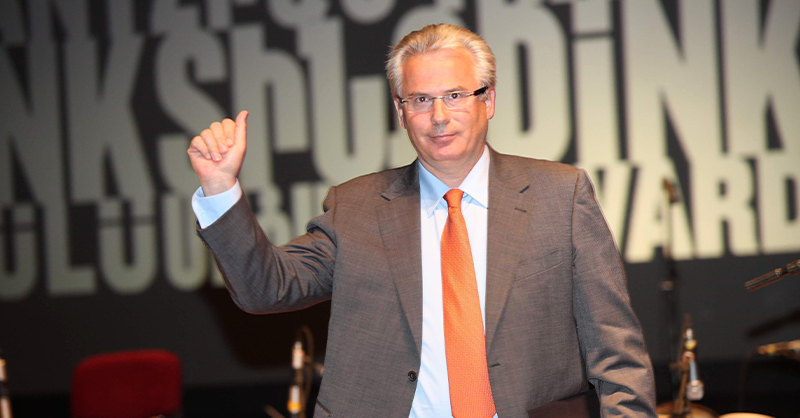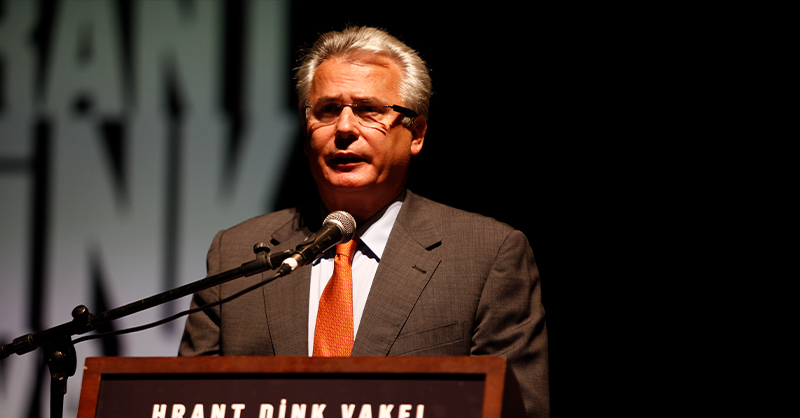
BALTASAR GARZÓN REAL was born in Torres, Spain on October 26th, 1955. By the time he entered the University of Sevilla in 1973, he was already determined to become a judge. He moved to a quiet town near the Portuguese border to begin his career as a local judge.
In 1985, at 30, he found evidence of corruption among prominent court officials of Marbella and wrote a confidential report urging further inquiry. When the case was shelved, he quitted. At 32, he qualified for one of the openings on the high court in Madrid. During an investigation, evidence soon emerged tying the Spanish security forces to the rightist assassination squads that came to be known as the Grupos Anti-terroristas de Liberación (GAL). He sought information on secret government accounts linked to GAL. Prime Minister Felipe González maintained that the release of such information would compromise national security but he was undeterred.
In 1993, promising reform, Garzón was offered to be a parliamentarian by the Socialist Party to combat corruption. The anti-corruption effort went nowhere, he was disappointed and resigned. He returned to the high court. First thing he did was to reveal the evidence pointing to the involvement of senior government officials with GAL.
In 1998, he had KAS shut down for being a part of The Basque separatist group ETA’s structure. He is in the blacklist of ETA for prosecuting the activities of the organization.
In 1998, he issued an international arrest warrant for Chilean junta leader Pinochet, who was in England at the time, for the crimes of torture and assassination of the Spanish citizens. Pinochet was put under house arrest in England for 16 months. The case served notice to many of the world’s tyrants that their impunity had been circumscribed, and it opened the way to other prosecutions for crimes against humanity in Europe, America and Africa.
He filed charges of genocide against Argentine military officers on the disappearance of Spanish citizens during Argentina’s 1976-1983 dictatorship. In 2005, Argentine naval officer Adolfo Scilingo was convicted for crimes against humanity and sentenced to 640 years.
In 2008, he initiated an investigation on the 114,000 disappearance during the Franco regime in Spain. He was accused of breaking the amnesty law which provides immunity for the crimes committed during Franco regime. A case was opened against him. He was suspended from his duties in May 2010, the case is still pending
First, I would like to thank the Hrant Dink Foundation for giving me this award for a better world, for peace, for the refusal of discrimination, racism and violence.
At the same time, I would like to salute the memory of the person who presented such an example of courage and conviction against intolerance, for peace and for human rights.
The press is one of the most indispensible instruments for the construction of democracy in a country. The attack on a journalist, who fights against intolerance, is one of the worst methods of violation of human rights. Each state has to provide the instruments for the protection of its citizens in particular, when it is a case of building a freer, a more equal and a more equitable society.
When people are persecuted for their ideas, this shows that there is a fundamental absence of human rights in that country. Hrant Dink was convinced of this and gave his life for this. His assassination is a matter of embarrassment for all of us.
As a person and as a judge, I have always believed that one of the most important and definite methods of obtaining peace and getting rid of racism, discrimination, violence is justice and the fight against impunity.
The history of humanity shows that impunity is one of the worst methods to deal with the state of the world.
The history of the world is full of instances where impunity was the rule. For instance, the Armenian Genocide has been denied and still being denied or the crimes of Latin American dictatorships those in Cambochia, Timour or elsewhere are only now being looked into. In Spain, the crimes against humanity of the Franco dictatorship are not even recognized as crimes, despite the fact that there are more than one hundred thirty thousand cases of disappearance. The cases of abduction, disappearance, torture or all the other crimes committed in the name of struggle against terrorism conflict with all idea of legality, and shows the failure of the idea of security is preferred over legality.
Today, we have to see that this panorama is inacceptable and the way is shown to us by Hrant Dink and the newspaper, Agos. We have to see that this picture changes.
The struggle against discrimination is a necessity but we have to go beyond the non-recognition of differences. Justice is necessary in order to deal with these problems and impunity. For this reason, crimes, whether they be domestic or international, should be the topic of action on part of international justice and the impunity forms deep source of embarrassment for humanity. As Tocqueville said, democracy is really based on moral attitude of people and unless impunity is fought against, the totalitarianism will be the result. That is why we need universal conscience, and instead of the economic reason we need administration on the basis of need and we have to make the defense of human rights or ideology. Instead of indifference we have to place responsibility, instead of intolerance we have to establish respect for difference. We are many and we will grow. We will fight against the arbitrary and intolerance. At times, we may fight for universal justice. At times, we may fight against war. At times, we may fight against uncultured and ugly globalization that impoverishes all. Perhaps, we will be able to put an end to the Guantanamos of the world. Perhaps, we will be able to demand with a single voice that the United Nations assume humanitarian leadership that corresponds to its mission and that it can complete the exercise of international norms. At time, perhaps we can find an educational instrument that will fight against all kinds of violations of human rights.
Perhaps, the European Union will find a way, an integrating manner of soliderizing with peoples, without expulsing people on the base of race or nationality. Perhaps, friends, will be able to put an end to impunity and install a real international justice because latter will not prove to be the soul solution against the former but nonetheless is a necessity for fighting it.
On this day, when European Court of Human Rights has made a decision in favor of Hrant Dink, let me say friends that we will not accept that the fight for human rights is something obsolete; it’s exactly the contrary. The Universal Declaration of Human Rights is more valid than ever in this sixty second year of its acceptance and will be the best political program for any government. It is worth fighting for human rights because our future depends on it. At times the effort of a limited number of people will succeed to change the course of events of the world. Hrant Dink is a very good example. Hrant Dink did this and we cannot turn away from his action. His memory will be very valuable for our self respect.
Thank you for inviting me tonight and for awarding me.
